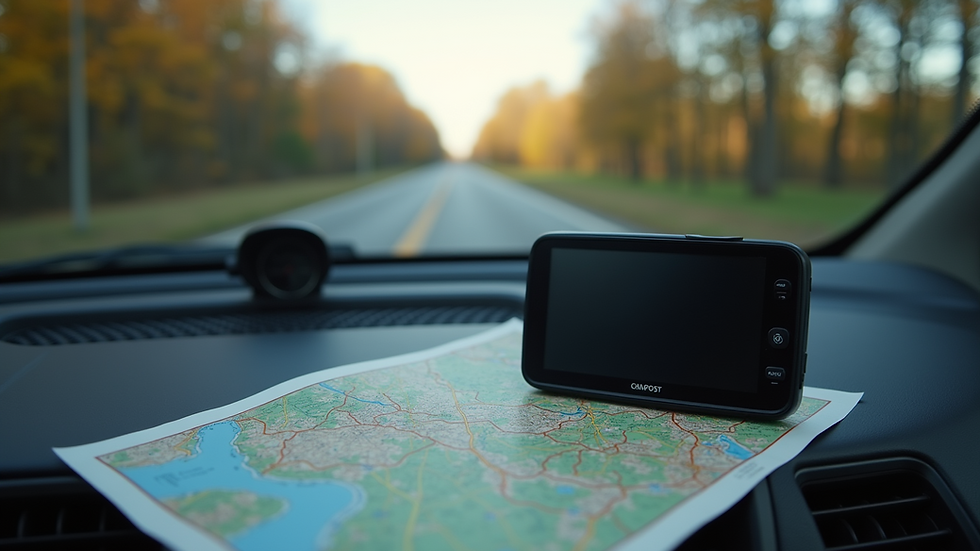Essential Gear for Off-Roading Adventures
- fryejs91
- Nov 20, 2025
- 3 min read
Updated: Dec 2, 2025
Recovery Gear
Getting stuck is part of off-roading, but being stuck without the right tools is not. Recovery gear includes:
Tow straps and shackles: Use rated straps designed for vehicle recovery, not regular rope.
Winch: A powerful winch mounted on your vehicle can pull you out of tough spots.
Hi-lift jack: Useful for lifting the vehicle to change tires or place traction aids.
Traction boards: These provide grip on sand, mud, or snow when tires spin.
Having these tools and knowing how to use them safely is crucial. Practice recovery techniques before heading out.
Tire Repair Kit and Air Compressor
Tires take a beating off-road. A puncture or slow leak can quickly ruin your trip. Carry a tire repair kit with plugs, patches, and tools to fix minor damage. An air compressor lets you adjust tire pressure for different terrains and reinflate tires after repairs or softening for better traction.
Navigation Tools
Off-road trails often lack clear signs or cell service. Relying solely on a smartphone GPS can leave you stranded. Bring:
Dedicated GPS device with offline maps.
Paper maps of the area as a backup.
Compass for basic orientation.
Plan your route ahead and mark key waypoints. This preparation helps avoid getting lost in remote areas.

Basic Tool Kit
Mechanical issues can happen anywhere. A compact tool kit with wrenches, screwdrivers, pliers, and socket sets helps you handle minor repairs. Include spare fuses, electrical tape, zip ties, and duct tape for quick fixes. Knowing basic vehicle maintenance and repair skills adds confidence.
First Aid Kit
Injuries can occur on rough terrain. A well-stocked first aid kit should include:
Bandages and gauze
Antiseptic wipes
Pain relievers
Tweezers and scissors
Emergency blanket
Check the kit regularly and replace expired items. Taking a basic first aid course is highly recommended.
Water and Food Supplies
Off-road trips can last hours or days. Carry enough water for drinking and emergencies. Dehydration is a serious risk, especially in hot or dry environments. Pack non-perishable, high-energy snacks like nuts, dried fruit, and energy bars to keep your strength up.
Communication Devices
Cell phones often lose signal in remote areas. Consider alternatives like:
Two-way radios for group communication.
Satellite messenger devices that send SOS signals and GPS coordinates.
These tools improve safety by allowing you to call for help if needed.
Lighting and Visibility
Off-road trails can extend into dusk or night. Bring reliable lighting such as:
LED light bars mounted on your vehicle.
Handheld flashlights or headlamps.
Spare batteries or rechargeable power banks.
Good lighting helps you navigate obstacles and signals your presence to others.

Protective Clothing and Gear
Wear durable clothing suited for the environment. Include:
Long sleeves and pants to protect from scrapes and sun.
Sturdy boots with good grip.
Gloves for handling rough equipment.
Hat and sunglasses for sun protection.
Layering helps adjust to changing weather conditions.
Vehicle Fluids and Spare Parts
Carry extra essential fluids like engine oil, coolant, and brake fluid. Bring spare parts that commonly fail, such as belts, hoses, and fuses. This preparation can prevent minor issues from turning into major breakdowns far from help.
Conclusion
Off-roading is an exhilarating experience that requires careful planning. By ensuring you have the right gear, you can enjoy your adventure while staying safe. Remember, preparation is key. Whether you’re exploring new trails or returning to your favorite spots, being equipped with the essentials will make your journey enjoyable and secure.
For more information on off-roading gear, check out this resource.





Comments